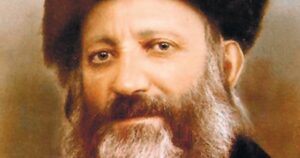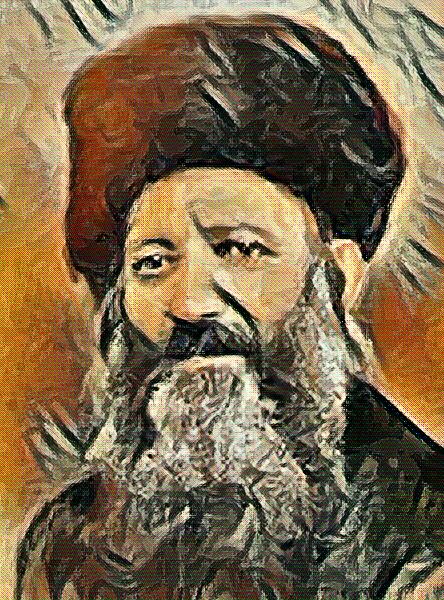The Mitzvah to Live in Israel
HaRav Avraham Yitzhak HaKohen Kook

It is told that Rabbi Avraham Yitzhak HaKohen Kook, the Chief Rabbi of Eretz Yisrael, hosted the sixth Admore of Lubavitch, Rebbe Yosef Yitzhak Schneersohn, in his home during the Admore’s visit to the Holy Land. Since it was Parshat Matot, Rabbi Kook said a Dvar Torah about the events in the Parsha, asking why Moshe Rabenu didn’t receive Divine punishment for speaking harshly to the tribes of Reuven and Gad for wanting to remain on the eastern bank of the Jordan River and not journey on to the Promised Land proper. After all, when Moshe called the Jews rebels when he smote the rock to bring forth water, Hashem punished him by not allowing him to enter the Land. Here, Moshe calls them “a brood of sinful men,” yet he is not punished. Rabbi Kook explained that because Moshe Rabenu rebuked them for weakening the Nation by not wanting to make Aliyah, as in the case of the Spies, it was correct to address them harshly, and Hashem agreed. “Even more so today,” Rabbi Kook told his distinguished guest. “We see the way of Torah in this matter. When these Tribes balked in performing the mitzvah of making Aliyah and conquering the Land of Israel, even though they presented tangible excuses, in possessing much cattle, it is not appropriate to answer them politely – rather yelling at them is the proper response. And if this is the case with the Tribes of Israel, how truer today, in a generation so poor in deeds, even if we find the most justified excuses, if that were possible, in failing to perform the mitzvah of Aliyah to the Land – what are we, what Torah do we have, what is our righteousness, what is our strength when compared to the Tribes in the days of Moshe?” Rabbi Kook added, “Our knowledge is limited, and the ways of Hashem are hidden, but there is absolutely nothing in the world which can absolve a person from making Aliyah to Eretz Yisrael. We must strengthen our faith and belief that only in the Aliyah to Israel and its settlement will the Torah be fulfilled, as it says: “Her king and her princes are among the nations – there is no Torah,” (Lamentations, 2:9).






